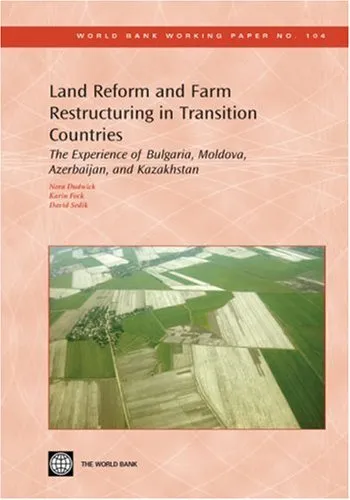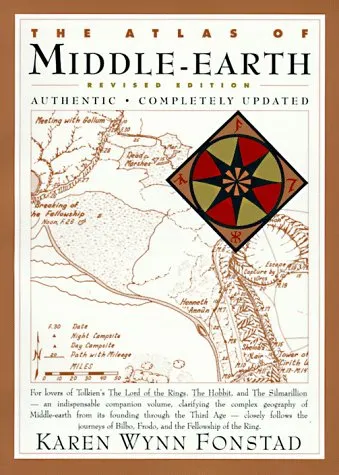Land Reform and Farm Restructuring in Transition Countries: The Experience of Bulgaria, Moldova, Azerbaijan, and Kazakhstan (World Bank Working Papers)
4.3
Reviews from our users

You Can Ask your questions from this book's AI after Login
Each download or ask from book AI costs 2 points. To earn more free points, please visit the Points Guide Page and complete some valuable actions.Related Refrences:
Introduction to Land Reform and Farm Restructuring in Transition Countries
Welcome to an in-depth exploration of the pivotal transformations that have reshaped the agricultural landscapes in Bulgaria, Moldova, Azerbaijan, and Kazakhstan. Land Reform and Farm Restructuring in Transition Countries unravels the complexities of land reform and the restructuring of farms during the significant socio-economic transitions these nations have undergone.
Detailed Summary of the Book
The book offers a comprehensive analysis of land reform policies and their practical implementations within the transitioning economies of Bulgaria, Moldova, Azerbaijan, and Kazakhstan. These countries, each with distinct historical and socio-political backdrops, embarked on a profound journey from state-dominated agricultural systems towards privatized and market-oriented sectors. The study encapsulates various approaches to land redistribution, farm restructuring, and their socio-economic outcomes.
In Bulgaria, the focus is laid on the restitution of land to former owners or their heirs, leading to a mosaic of small, fragmented holdings. Moldova illustrates a stark contrast, highlighting land distributions that emphasize collective organization among private owners. Azerbaijan's journey through post-Soviet transition into land reform is underscored by privatization initiatives and the emergence of family farms. Lastly, Kazakhstan exhibits a hybrid approach where large-scale farming coexists with small privately-held plots.
This work not only evaluates the policy choices and their effectiveness but also provides nuanced insights into the intended and unintended consequences of these reforms, reflecting both successes and challenges along the transition pathways.
Key Takeaways
- Land reform strategies significantly influence agricultural productivity and rural development.
- The complexity of socio-economic and historical contexts requires tailored approaches to reform.
- The transition from state control to privatization is fraught with challenges including legal, institutional, and infrastructural changes.
- Understanding the local dynamics is crucial for effectively implementing land reforms.
- The balance between large-scale and small-scale farming has critical implications for sector sustainability and rural livelihoods.
Famous Quotes from the Book
"The agricultural sector's transformation is not merely an economic phenomenon but a profound social and cultural shift."
"In the heart of land reform lies the delicate balance between equity, efficiency, and historical justice."
Why This Book Matters
This book serves as a crucial resource for policymakers, academics, and students of agricultural economics. It provides invaluable insights into how land reforms can be effectively designed and implemented in transitioning economies. The diversity of approaches and outcomes detailed in this study offers lessons not only for the countries at its focus but also for other nations contemplating similar reforms.
The work of Nora Dudwick, Karin Fock, and David Sedik echoes beyond the mere restructuring of land systems, questioning and probing the deeper societal impacts of such transitions. As global economies continue to evolve, the reflections and analyses herein remain relevant to contemporary debates on sustainable rural development and economic equity.
Ultimately, this book matters because it captures the trials and triumphs of reforming a sector at the core of human livelihood, contributing meaningfully to the discourse on economic transitions and international development.
Free Direct Download
You Can Download this book after Login
Accessing books through legal platforms and public libraries not only supports the rights of authors and publishers but also contributes to the sustainability of reading culture. Before downloading, please take a moment to consider these options.
Find this book on other platforms:
WorldCat helps you find books in libraries worldwide.
See ratings, reviews, and discussions on Goodreads.
Find and buy rare or used books on AbeBooks.
1372
بازدید4.3
امتیاز0
نظر98%
رضایتReviews:
4.3
Based on 0 users review
Questions & Answers
Ask questions about this book or help others by answering
No questions yet. Be the first to ask!















